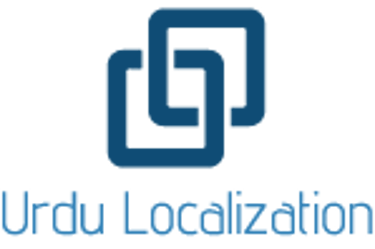
The Rise of Urdu Audiobooks and Podcasts: Expanding Access to Knowledge
3 min read

The digital revolution has transformed how people consume stories, knowledge, and entertainment. For Urdu speakers, this transformation has opened a new chapter with the rapid growth of audiobooks and podcasts. These formats are no longer niche—they have become mainstream tools for education, entertainment, and professional development. With the support of Urdu translation and localization services, this trend is bridging gaps in accessibility and making high-quality content available to millions who prefer listening in their own language.
Why Urdu Audiobooks Are Gaining Popularity
Audiobooks are not just about convenience; they are about inclusion. For many Urdu speakers, particularly those with limited literacy, audiobooks provide a way to engage with literature, research, and even professional texts. Classic works of Urdu poetry and fiction are being rediscovered in audio format, while global bestsellers translated into Urdu expand opportunities for readers who otherwise might not have access. Professional Urdu translators and voice-over artists play a crucial role in this process, ensuring that the tone, rhythm, and style of narration capture the original intent of the text while remaining culturally resonant.
Podcasts as a Platform for Learning and Dialogue
Podcasts have become a global phenomenon, offering discussions, interviews, and storytelling across diverse fields. In Urdu, podcasts are creating new spaces for dialogue—whether about politics, culture, health, or education. Urdu localization services allow creators to adapt global podcast formats for local audiences, making the content feel relevant and engaging. From medical advice tailored to Pakistani audiences to motivational talks for Urdu-speaking professionals, the variety of topics continues to grow. Professional Urdu translators help adapt content from English or other languages, ensuring that key terms and cultural nuances are not lost.
Breaking Barriers for Limited English-Speaking Audiences
One of the most important impacts of Urdu audiobooks and podcasts is their ability to serve Limited English-Speaking (LES) audiences. Many Urdu speakers cannot access the vast ocean of English-only content available on popular platforms. By offering accurate English to Urdu translation and localized audio, knowledge becomes democratized. Whether it’s a scientific book, a business podcast, or a self-help guide, Urdu translations make this information usable and relatable. Human Urdu translation vs machine results here show clear differences, as only human translators can ensure the cultural appropriateness and clarity necessary for comprehension.
The Technical Side of Urdu Audio Localization
Creating Urdu audiobooks and podcasts goes beyond translation. Technical adaptation is essential, including sound quality, accent clarity, and culturally familiar intonation. Urdu’s phonetic richness requires skilled voice-over professionals who can convey emotions naturally while maintaining clarity. In podcasts, this also means ensuring smooth editing, accurate time coding for subtitles, and sometimes even adapting music or sound effects that match local preferences. Human expertise is irreplaceable in this process, as poorly localized audio can easily alienate listeners.
Cultural Preservation Through Audio
Urdu is not just a language; it is a cultural treasure filled with poetry, idioms, and storytelling traditions. Audiobooks and podcasts are becoming tools for preserving this cultural identity in the digital age. Translating global content into Urdu ensures that Urdu-speaking listeners are not left behind, but equally important is the creation of original Urdu content that showcases local stories. Professional Urdu translators, proofreaders, and editors help maintain linguistic purity, ensuring that the authenticity of Urdu is not diluted in the process.
Educational Opportunities in Urdu Audio Content
Education is one of the sectors where Urdu audiobooks and podcasts are making the largest impact. Students can now access Urdu translations of academic texts, research papers, and lectures that were once locked behind English. Podcasts focused on exam preparation, subject matter reviews, or professional training provide resources for students and professionals who learn best through listening. Urdu document translation teams also play a role here by converting written study materials into scripts ready for audio narration, while editors ensure terminology accuracy. This builds inclusivity in learning and opens doors for communities often excluded from global education due to language barriers.
Expanding Market Reach for Publishers and Creators
For publishers, content creators, and streaming platforms, Urdu audiobooks and podcasts represent untapped markets. The Urdu-speaking audience is vast, stretching across Pakistan, India, the Middle East, and global diaspora communities. Offering localized Urdu audio content helps companies stand out in crowded markets while building loyalty among new listeners. By working with professional Urdu translators, proofreaders, and voice-over experts, businesses can ensure their audio offerings feel natural and engaging. This is especially important in sectors like health, finance, and education, where credibility depends on accuracy.
Challenges of Machine Translation in Audio
While AI-powered tools are being tested in audiobook and podcast localization, they fall short when applied to Urdu. Machine translation often results in clumsy phrasing, tonal errors, and loss of nuance—problems amplified in spoken formats where listeners immediately notice mistakes. Human Urdu translation vs machine outcomes demonstrate that only professional Urdu translators can achieve the emotional depth and clarity that listeners expect. Proofreading and editing remain essential steps before scripts are recorded, ensuring that the final product is both accurate and appealing.
The rise of Urdu audiobooks and podcasts reflects a broader trend of inclusivity in the digital world. For millions of Urdu speakers, audio content is more than convenience—it is access, empowerment, and representation. By investing in professional Urdu localization services, publishers and platforms are not just expanding their reach; they are opening the doors of knowledge, entertainment, and cultural preservation. In the years to come, Urdu voices in global media will not only tell translated stories but also shape original narratives that enrich the world’s understanding of one of its most beautiful languages.
